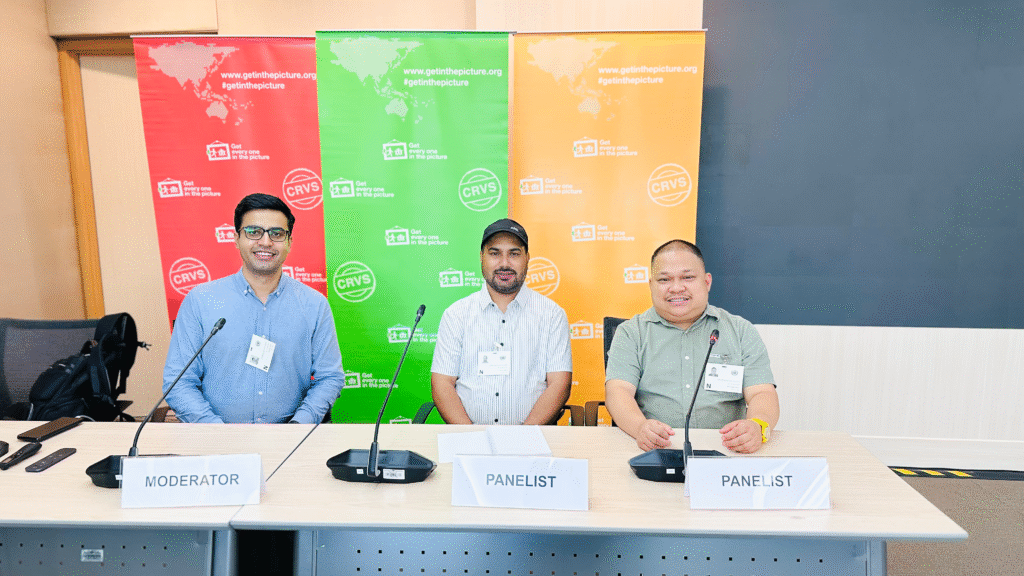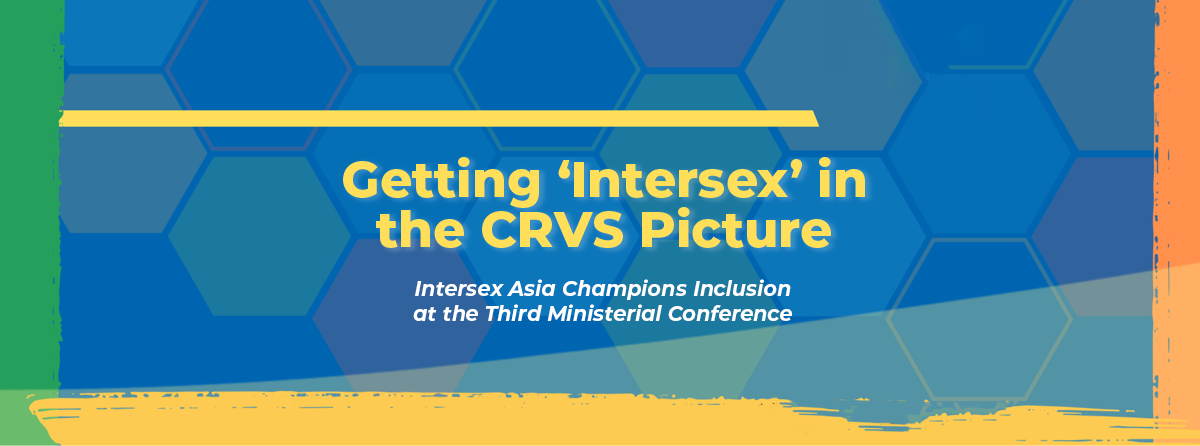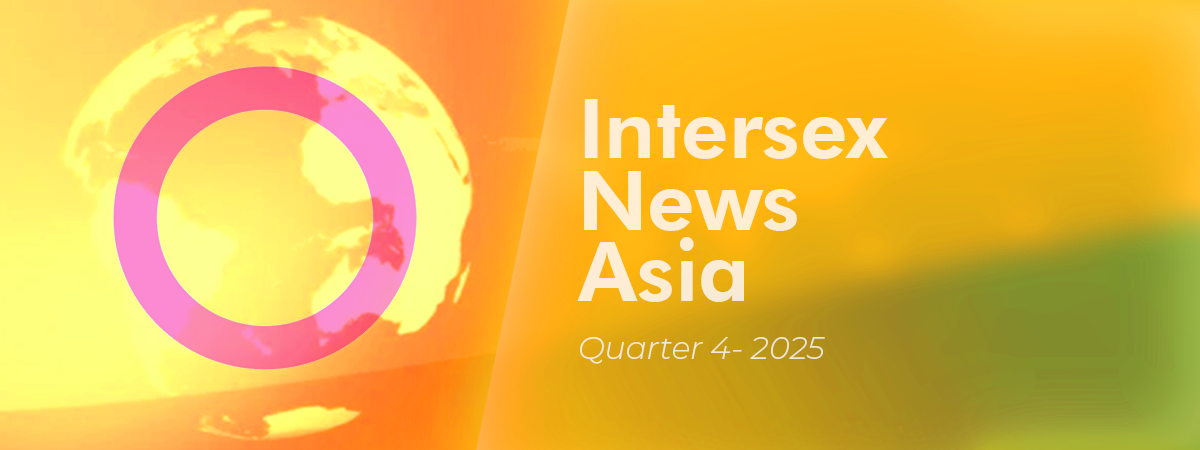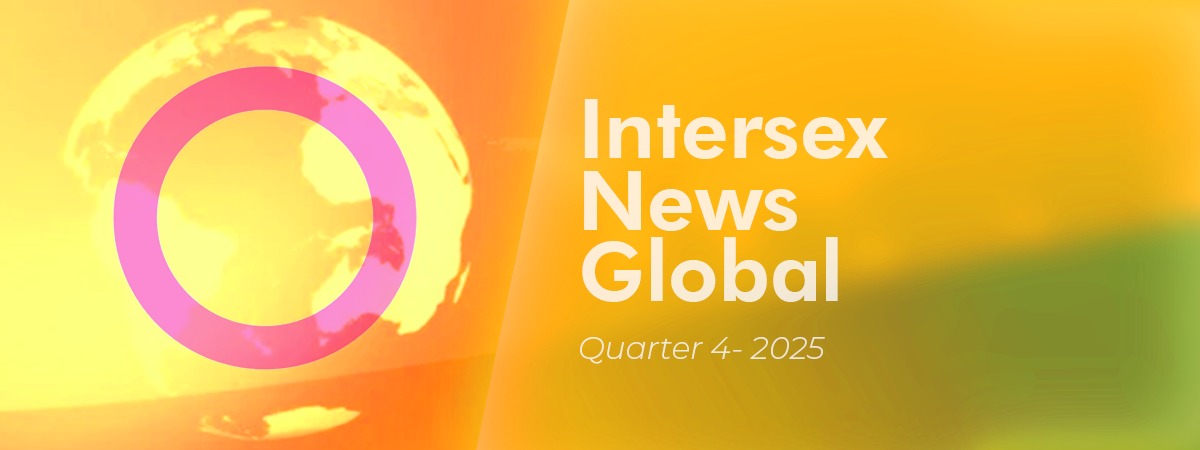In a significant stride for the global intersex movement, Intersex Asia successfully co-organised a pivotal side event at the Third Ministerial Conference on Civil Registration and Vital Statistics (CRVS) in Asia and the Pacific, held from June 24-26, 2025, in the UNESCAP Bangkok. The side event hosted on June 24, titled “Getting ‘Intersex’ in the Picture: Ensuring Intersex Inclusion in CRVS Mechanisms,” marked what is believed to be the first-ever dedicated discussion on the inclusion of intersex people within the CRVS framework at such a high-level forum.
This momentous occasion represents a critical step forward in an increasingly important area of advocacy for the intersex community. The ability to be accurately and respectfully registered at birth has a profound impact on every aspect of an intersex person’s life, from accessing healthcare and education to securing legal recognition and protection from harm.

The event was a collaborative effort, organized by Intersex Asia and our partners- Campaign for Change, Nepal, Intersex Philippines, and InterAction for Health and Human Rights. The insightful discussion drew a diverse and influential audience, including government officials, representatives from UN Agencies such as the United Nations Population Fund (UNFPA), and leading civil society organizations. This gathering not only amplified intersex voices but also fostered crucial connections, particularly with government officials from Nepal and the Philippines, building a strong foundation for future partnerships and collaborative action.
Voices from the Community: A Call for Recognition and Reform
The panel discussion, moderated by Prashant Singh, Intersex Asia’s Research and Advocacy Officer, featured powerful testimonies and sharp analysis from intersex leaders.
Jeff Cagandahan of Intersex Asia and Intersex Philippines shared his harrowing personal experience of fighting a long and arduous legal battle in the Philippines to have his name and sex marker corrected on his identity documents. This deeply personal struggle, he explained, was the catalyst for the proposed Cagandahan Bill in the Philippines parliament. In a powerful call to action, Jeff detailed how Intersex Philippines is now working directly with legislators to create a more humane and accessible administrative process for changing legal documents, sparing others the judicial ordeal he endured.
Esan Regmi, from Intersex Asia provided a compelling overview of the complex situation in Nepal and the broader South Asian region. He highlighted the stark contradictions within Nepal’s legal framework.
Esan pointed out several critical issues:
- Confusing Legal Terminology: The government’s forms offer “male/female/other” as gender options, with “other” problematically defined to encompass all LGBTI people, rendering intersex individuals invisible.
- Risk of Harmful Practices: Faced with confusing paperwork and social stigma, parents of intersex children are often pressured to assign a binary sex. This pressure can lead to non-consensual, medically unnecessary surgeries and hormonal interventions on infants, violating their fundamental right to bodily autonomy and the right to determine their own identity.
- Flawed Data Collection: The recent national census in Nepal collected data on 2,928 LGBTI people under a single “Other” category. This aggregated data is wholly inadequate for understanding the specific population size and needs of the intersex community, making targeted policy-making impossible.
Morgan Carpenter from InterAction Australia presented the Australian Bureau of Statistics (ABS) Standard for Sex, Gender, Variations of Sex Characteristics and Sexual Orientation Variables, 2020. This standard distinguishes innate variations of sex characteristics (IVSC) as a separate concept from sex, gender, and sexual orientation.
Wider Impact and A Look Ahead
Intersex Asia’s advocacy extended beyond our side event. We were deeply involved in drafting the official Civil Society Statement, which was read during the opening session of the Ministerial Conference. Our intervention ensured the statement included a strong call for the inclusion of intersex voices and highlighted the unique challenges our community faces in the context of CRVS. This work builds on our consistent efforts at platforms like the UN ESCAP CSO Forum and the recent ILGA Asia Conference.
The success of this event has galvanised our commitment. It has reinforced that ensuring every intersex person is counted and respected from birth is fundamental to our fight for human rights. Building on this momentum, Intersex Asia is excited to announce that we will soon launch a comprehensive thematic report on CRVS, providing in-depth analysis and actionable recommendations for policymakers across the region.
Our engagement throughout the conference is more than an achievement; it is a turning point. We have successfully placed intersex rights on the CRVS agenda in Asia and the Pacific, forging new alliances and charting a clear path forward. The journey is long, but for the first time, we are truly getting ‘intersex’ in the picture.




